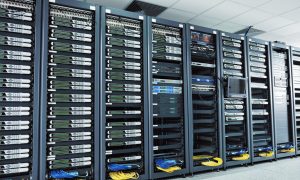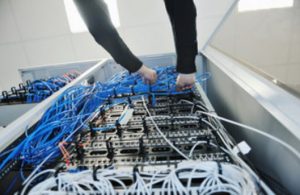
Cryptocurrency’s prominence has caused a spike in demand for crypto mining data centers. These sites have specialized features tailored to crypto miners’ unique needs and the distinct challenges crypto mining processes present.
Discover why specialized cryptocurrency data centers are necessary, how they differ from standard data centers and how you can access the land you need to develop one.
The Need for Specialized Crypto Data Centers
The cryptocurrency economy relies on data centers that support large-scale mining of common cryptocurrencies. Specialized Bitcoin data centers expedite cryptocurrency transaction validation, leverage blockchain decentralization and promote environmental sustainability.
Validating Cryptocurrency Transactions
Cryptocurrency transactions pass through a public blockchain ledger. Each transaction creates a new block with a unique code that verifies the transaction. Transaction verification occurs when a user on the blockchain network deciphers the code.
Thousands of users spring to verify each transaction. The one who solves the equation first receives new cryptocurrency as a reward. This process is called crypto mining. The fastest miners use powerful hardware to instantaneously attempt thousands of solutions until they reach the correct one. Crypto mining data centers must include powerful equipment that can support large-scale mining.
Leveraging Blockchain Decentralization
There is no single authority figure or central location in a blockchain network. Rather, data is accessible to numerous devices from any location. A transaction updates the blockchain on all devices. No single device can attempt a change within a completed block without the others noticing, so transactions are safer from fraud.
A data center for cryptocurrency can capitalize on blockchain decentralization through calculated resource distribution. Rather than housing all equipment in one location, a network of disparate cryptocurrency data centers can share resources. Resource distribution promotes scalability and network security while optimizing operational costs.
Promoting Sustainability
Cryptocurrency data centers draw a significant amount of power when computing solutions from thousands of devices. The mining process draws power to the computation equipment, but equipment cooling systems are substantial contributors. Cryptocurrency mining generates heat, so a data center’s infrastructure must support robust cooling systems.
A data center’s location improves its sustainability. Proximity to a sustainable power source like a hydroelectric dam reduces the facility’s environmental impact and operational costs. Building a data center in a cooler region helps reduce the amount of energy required to cool the facility’s equipment.
Crypto data centers strive for efficiency through their cooling equipment. Methods like immersion cooling innovate the crypto farming industry’s approach to cooling.
Crypto Data Center Hardware and Infrastructure
The need for specialized cryptocurrency mining data centers is clear, but what do they look like? A data center tailored for cryptocurrency mining includes a few core pieces of hardware and specific infrastructural elements.
Crypto Data Center Hardware
A crypto mining data center features much of the same hardware as a typical data center:
- Data servers
- Server racks
- Graphics processing units
- Network modems and routers
- Network switches
- Load balancers
- Data storage equipment
- Security monitoring and alarm systems
Crypto Data Center Infrastructure
Similar to a typical data center, crypto mining data centers require various infrastructural elements:
- Electrical equipment such as power distribution units, electric panels and backup generators
- Air cooling equipment and ducts to distribute cool air to server rooms
- Cabling infrastructure for electrical wiring and ethernet
Differences Between Crypto and Regular Data Centers
Crypto data center hardware, infrastructural elements and processes are distinct from those found in a traditional data center:
- Workload and operations: Where typical data centers cover a wide range of computing tasks, a crypto data center’s primary focus is blockchain verification. These operations occur at the same level around the clock, whereas a normal data center’s operational demand ebbs and flows.
- Hardware: Crypto data centers have as many as five times the number of servers that a typical data center would host. Other specialized hardware like application-specific integrated circuits (ASICs) increase computing power in crypto mining settings.
- Scalability and flexibility: Scalability and flexibility are essential to crypto mining data centers as demand increases. Where typical data centers feature a static infrastructure, crypto farms are often modular.
- Cooling systems: Crypto farms feature advanced cooling systems that address the significant amount of heat that mining processes generate. Standard cooling systems would be inefficient, so heat dissipation equipment is common.
- Server turnover: Intensive mining processes shorten the life span of a crypto server. A crypto farm will replace its servers more frequently than a standard data center.
SelectROW Facilitates Land Acquisition for Crypto Mining Data Centers
Obtaining land is crucial in Bitcoin mining data center development. Your organization must acquire land to build the data center and access nearby properties for material transportation and infrastructure development.
At SelectROW, we survey land parcels, research titles, obtain right-of-ways and interface with stakeholders on behalf of organizations developing data centers. Our expertise empowers us to connect data center developers with the land they need on an accelerated timeline. We understand the laws and regulations relevant to data center development to ensure compliance.
We invite you to contact us online for further information on our land acquisition services.
